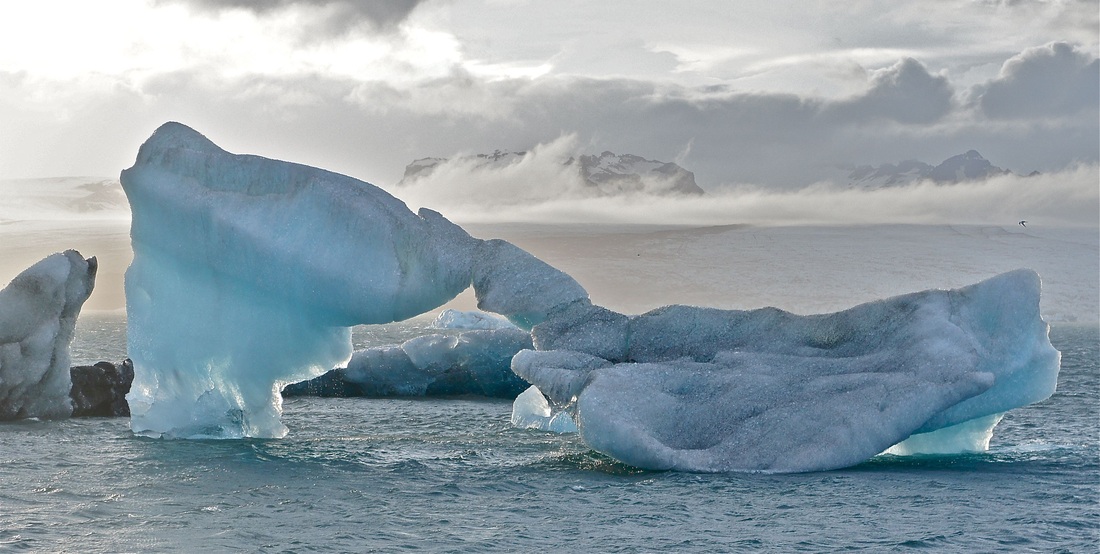When I was 13, I believed in the Christian God, I thought homosexuality was wrong, and I cheered on the second term of Republican President Ronald Regan. Now, at 43, every single one of those position have been reversed. Why? How? I was raised in an observant Catholic household in rural Pennsylvania that subscribed to The American Spectator magazine and had a membership in the NRA, so my early beliefs were clearly a product of my early environment. But somewhere along the line in one of my high school classes on biology, chemistry, or physics, it finally sunk in about how to question ideas and search for countervailing facts to test my theories. I learned about the scientific method, and the course of my life was changed. A class on logic during my freshman year in college helped me navigate the fallacies listed above and elsewhere too. I'm not certain I've found the right answers yet, but I'm at least certain I'm using the right methods to get there.
A few months ago when I profiled Francis Bacon - the father of the scientific method who introduced it with the publication of his book Novum Organum (New Instrument) in 1620 - I listed a few of his quotes that happen to be excellent reminders of what to consider when thinking about Dhara's issue:
If a man will begin with certainties, he shall end in doubts; but if he will be content to begin with doubts he shall end in certainties.
But by far the greatest obstacle to the progress of science and to the undertaking of new tasks and provinces therein is found in this - that men despair and think things impossible.
Read not to contradict and confute; nor to believe and take for granted; nor to find talk and discourse; but to weigh and consider.
There are still plenty of areas of inquiry that the scientific method has failed to confidently uncover - e.g. the best diet to eat, the best cure for diseases, the best forms of exercise - and in these realms we can really only act carefully and conduct our own experiments that contribute to the search for truth. And this is precisely what Dhara should have done in 1822 when she first learned about the properties of "ice"; she should have kept an open mind until more and better information came in.
What do you think? Are there any other issues you worry about when considering new facts?
-------------------------------------------------------
Dhara Gupta lived all her life in a village near Jaisalmer in the Rajasthan desert. One day, in 1822, as she was cooking dinner, she became aware of a commotion. She looked up to discover that her cousin, Mahavir, had returned from a trip he had begin two years before. He looked in good health, and over dinner retold them of his adventures.
There were tales of robbers, wild animals, great mountains and other incredible sights and adventures. But what really stunned Dhara was his claim to have seen something called "ice".
"I went to regions where it was so cold, the water stopped flowing and formed a solid, translucent block," said Mahavir. "What is more amazing is that there is no state between where the liquid thickens. The water that flows freely is only slightly warmer than that which has solidified."
Dhara did not want to challenge her cousin in public, but she did not believe him. What he said contradicted all her experiences. She did not believe it when travellers told her of fire-breathing dragons. Nor would she believe this nonsense about ice. She rightly thought she was too intelligent for that.
Baggini, J., The Pig That Wants to Be Eaten, 2005, p. 7.
-----------------------------------------------------
We know now that Mahavir was completely right about his description of ice, but does that mean Dhara should have believed him? We don't know anything about his previous actions and general reliability, but Dhara seems to have committed quite a few fallacies in rejecting his report the way the thought experiment stated it. Just choosing the most obvious ones from the lengthy List of Fallacies on wikipedia (which contains 128 separate entries), we see Dhara falling prey to the:
- Confirmation bias fallacy - the tendency to favor information that confirms one's beliefs or hypotheses and to ignore information that disagrees with one's point of view.
- Appeal to the stone - dismissing a claim as absurd without demonstrating proof for its absurdity.
- Argument from (personal) incredulity (divine fallacy, appeal to common sense) - I cannot imagine how this could be true, therefore it must be false.
- Ad hominem argument - the evasion of the actual topic by directing an attack at your opponent.
- Appeal to tradition - a conclusion supported solely because it has long been held to be true.
Still, should Dhara have accepted Mahavir's story exactly at face value? We didn't hear the story she heard in its entirety, but had she believed it, Dhara might have committed one of these errors:
- Anecdotal fallacy - using a personal experience or an isolated example instead of sound reasoning or compelling evidence.
- False attribution - an advocate appeals to an irrelevant, unqualified, unidentified, biased or fabricated source in support of an argument.
- False authority (single authority) - using an expert of dubious credentials or using only one opinion to sell a product or idea.
- Cherry picking (suppressed evidence, incomplete evidence) - act of pointing at individual cases or data that may contradict that position.
- Appeal to authority - where an assertion is deemed true because of the position or authority of the person asserting it.


